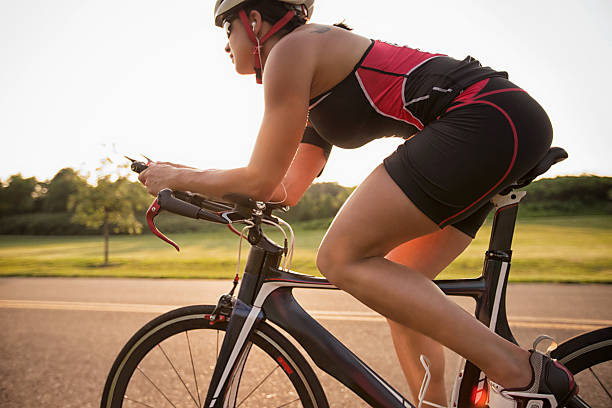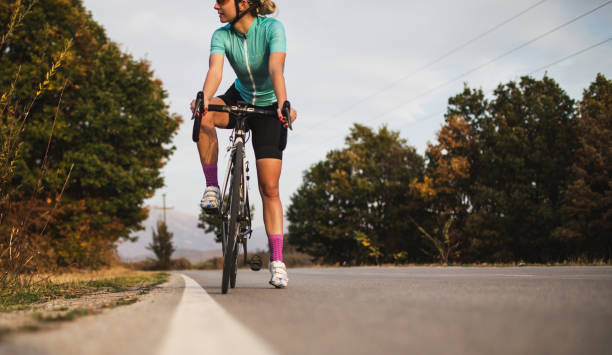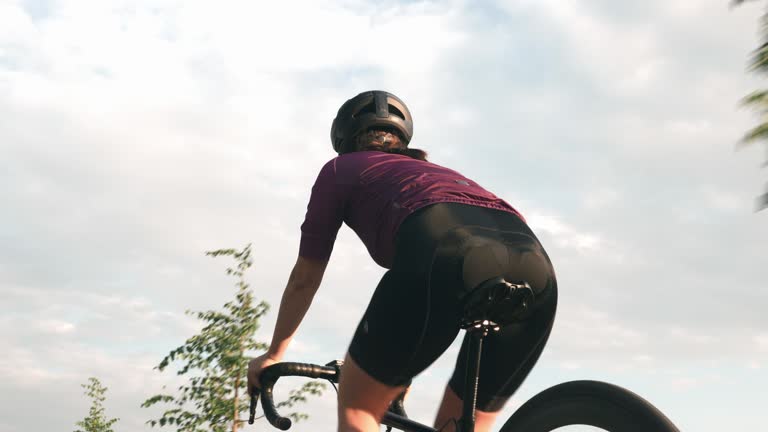Understanding Heart Rate Zones for Effective Cycling
This post contains affiliate links. This means I will make a commission at no extra cost to you should you click through and make a purchase. Read the full disclosure here.
Because riding smarter matters more than riding harder.
Let’s talk heart rate.
Not in the romantic sense (though hey, biking does make the heart happy).
We’re talking about how understanding your heart rate zones can help you ride more efficiently, burn more fat, and avoid overtraining.
And don’t worry—we’re keeping it beginner-friendly, no sports science degree required.
What Are Heart Rate Zones?
Your heart rate zones are basically ranges that show how hard your heart is working during a workout.
There are five main zones, each with its own benefits.
These zones are based on your maximum heart rate (MHR)—which you can estimate with this simple formula:
220 − your age = estimated MHR
(So if you’re 40: 220 − 40 = 180 beats per minute)
The 5 Heart Rate Zones (and What They Mean)
🟦 Zone 1: Very Light (50–60% of MHR)
- Feels like: Easy stroll pace
- Benefits: Recovery, warm-ups, stress relief
- Use it for: Gentle morning rides, cooldowns
🟩 Zone 2: Light (60–70% of MHR)
- Feels like: You can talk comfortably
- Benefits: Fat burning, endurance building
- Use it for: Longer rides, fitness base building
- This is where most of your everyday cycling should live!
🟨 Zone 3: Moderate (70–80% of MHR)
- Feels like: Breathing heavier but still controlled
- Benefits: Improved aerobic fitness
- Use it for: Steady cardio days
🟧 Zone 4: Hard (80–90% of MHR)
- Feels like: Short bursts, not sustainable for too long
- Benefits: Boosts speed and strength
- Use it for: Intervals or hill rides
🟥 Zone 5: Very Hard (90–100% of MHR)
- Feels like: Max effort—think sprinting
- Benefits: Peak performance, power
- Use it for: Quick sprint finishes or HIIT workouts
How Do I Track My Heart Rate?
Easy ways to keep an eye on your beats per minute:
- Fitness watches:
Try the Fitbit Charge 6 or Garmin Forerunner 55 - Chest strap monitors:
More accurate for serious tracking — like the Polar H10 - Bike computers:
If you’re riding longer distances, check out the Wahoo ELEMNT Bolt
Bonus tip: Some fitness apps (like Strava or Garmin Connect) show heart rate zones automatically once you connect your tracker.
Why It Matters for Women Cyclists
💡 Spoiler: It’s not just for elite athletes.
Understanding heart rate zones helps you:
- Burn fat more efficiently
- Avoid pushing too hard (hello, burnout)
- Recover better
- Know exactly how your body is responding to different rides
It turns your bike into a personalized fitness tool.
Sample Zone-Based Ride Plan
Here’s a simple week to try:
- Monday: 30 mins in Zone 2 (fat-burning ride)
- Wednesday: 5-min warm-up, 3x 2-min in Zone 4 with rest in between
- Friday: 45 mins in Zone 2
- Sunday: 20 mins in Zone 3 (steady pace) + cooldown
Adjust based on your energy, goals, and schedule!
Final Thoughts
You don’t have to chase speed.
You just need to ride smarter—and heart rate zones help you do exactly that.
So next time you hop on your bike, tune in to your heart.
She’s got wisdom.








